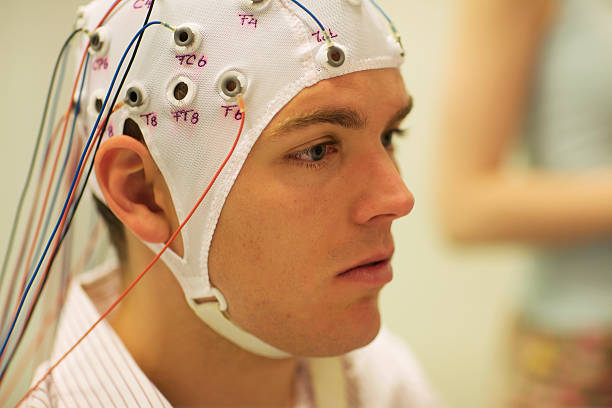Why Specialized Mitral Valve Clinics and Surgeons Are Transforming Heart Care in the US
Mitral valve clinics across the US provide expert evaluation education and treatment for heart health. With top surgeons advanced technology and patient-focused care these centers help families make informed choices about wellness and long-term support.

What Mitral Valve Clinics Are and How They Function
Mitral valve clinics represent a specialized approach to cardiac care that focuses exclusively on disorders affecting the mitral valve, one of the heart’s four critical valves. These clinics bring together cardiologists, cardiac surgeons, imaging specialists, and other healthcare professionals who concentrate their expertise on mitral valve conditions such as mitral regurgitation, mitral stenosis, and mitral valve prolapse.
Unlike general cardiology practices, these specialized centers utilize advanced diagnostic equipment specifically designed for valve assessment, including three-dimensional echocardiography, cardiac MRI, and transesophageal echocardiography. The clinic model ensures that patients receive evaluation from multiple specialists during a single visit, streamlining the diagnostic process and reducing the time between initial assessment and treatment decisions.
The Essential Function of Specialized Mitral Valve Surgeons
Specialized mitral valve surgeons possess extensive training and experience in complex valve repair and replacement procedures. These cardiac surgeons typically complete additional fellowship training focused specifically on valve surgery techniques, developing expertise in minimally invasive approaches, robotic surgery, and complex repair procedures that preserve the patient’s natural valve whenever possible.
The surgeon’s specialization extends beyond technical skill to include deep understanding of patient selection criteria for different treatment approaches. They work closely with interventional cardiologists to determine whether patients are candidates for transcatheter mitral valve repair procedures or require traditional surgical intervention. This collaborative approach ensures that patients receive the most appropriate treatment based on their specific anatomy and overall health status.
Advantages of Early Detection and Coordinated Care
Early detection of mitral valve disease significantly improves patient outcomes and treatment options. Specialized clinics implement systematic screening protocols that can identify valve problems before symptoms develop, allowing for timely intervention when repair procedures are most likely to succeed.
Coordinated care models eliminate the communication gaps that often occur when patients see multiple specialists independently. Team-based conferences allow specialists to review complex cases together, ensuring that treatment recommendations reflect input from all relevant disciplines. This coordination also extends to post-operative care, with dedicated nurse coordinators managing patient follow-up and monitoring recovery progress.
Notable US Medical Centers Providing Advanced Heart Treatment
Several major medical institutions have established comprehensive mitral valve programs that serve as models for specialized cardiac care. The Mayo Clinic operates dedicated valve clinics across multiple locations, combining advanced imaging capabilities with experienced surgical teams. Cleveland Clinic’s Heart, Vascular & Thoracic Institute offers a multidisciplinary valve center that performs hundreds of complex mitral valve procedures annually.
Massachusetts General Hospital’s cardiac surgery program includes specialized mitral valve expertise with focus on minimally invasive techniques. Mount Sinai Hospital in New York has developed a comprehensive valve program that integrates both surgical and transcatheter treatment options. These institutions demonstrate the effectiveness of specialized clinic models in delivering superior patient outcomes.
| Medical Center | Services Offered | Key Features |
|---|---|---|
| Mayo Clinic | Comprehensive valve assessment, surgical repair/replacement | Multi-location access, 3D imaging technology |
| Cleveland Clinic | Surgical and transcatheter procedures, genetic counseling | High-volume experience, research programs |
| Mass General | Minimally invasive surgery, robotic procedures | Academic medical center, latest techniques |
| Mount Sinai | Full spectrum valve care, clinical trials | Urban accessibility, innovative treatments |
Patient and Family Guidance for Selecting Appropriate Care
Patients seeking mitral valve care should research medical centers that demonstrate high procedure volumes and specialized expertise. Look for programs that offer comprehensive evaluation services, including advanced imaging capabilities and multidisciplinary team conferences. Board certification in cardiac surgery and additional fellowship training in valve procedures indicate appropriate specialist qualifications.
Insurance coverage considerations play an important role in treatment selection, as specialized procedures may require pre-authorization or referrals. Patients benefit from choosing centers that provide dedicated patient coordinators who can assist with insurance navigation and appointment scheduling. Geographic accessibility for follow-up care should also factor into decision-making, particularly for patients requiring ongoing monitoring.
The emergence of specialized mitral valve clinics represents a significant advancement in cardiac care delivery. By concentrating expertise and resources on specific valve disorders, these programs offer patients access to the most current treatment options and improved outcomes. As this model continues to expand across the United States, more patients will benefit from comprehensive, coordinated care that addresses both immediate treatment needs and long-term cardiac health management.
This article is for informational purposes only and should not be considered medical advice. Please consult a qualified healthcare professional for personalized guidance and treatment.




